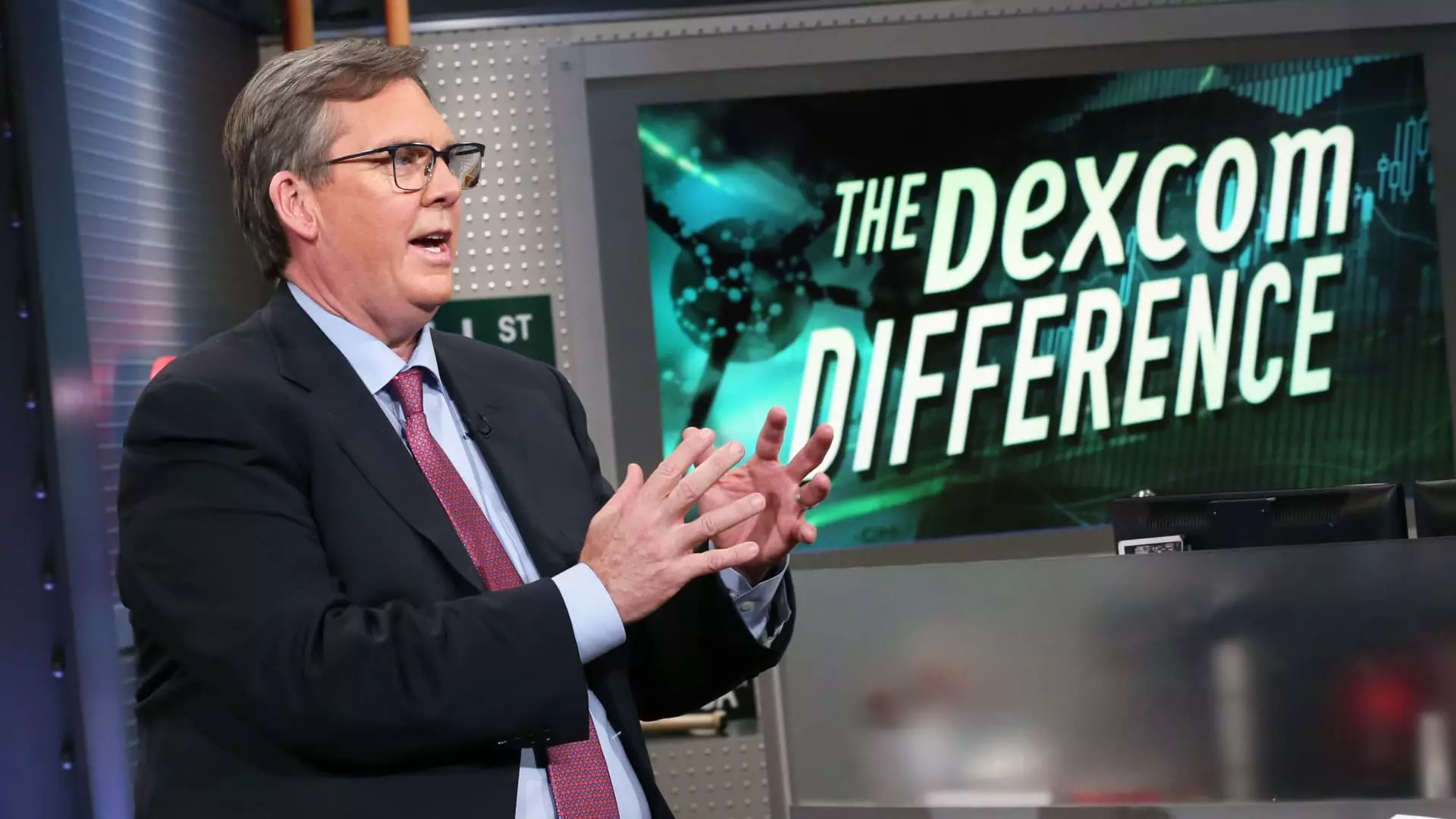Dexcom, a prominent player in the diabetes management technology sector, unveiled its third-quarter earnings results, which revealed a paradoxical scenario: a revenue increase overall but a notable decline in its domestic market. During after-hours trading on Thursday, Dexcom’s shares dropped by 9%, signaling investor disappointment despite the company surpassing revenue and adjusted earnings per share (EPS) expectations. The company posted an adjusted EPS of 45 cents, beating the anticipated 43 cents, and total revenue of $994 million, slightly above the $990 million forecasted by analysts. However, this 2% year-over-year revenue growth was primarily driven by international markets, as U.S. revenue faced a downturn, dropping 2% from $713.6 million in the prior year.
Despite these figures, the dip in U.S. revenue is concerning for investors. The decline indicates a potential stagnation in Dexcom’s primary market and raises questions about the company’s competitive positioning. With the continuous glucose monitoring (CGM) technology gaining traction, particularly in the diabetes care sector, a downturn in a key revenue stream may reflect broader challenges, such as market saturation or ineffective marketing strategies. CEO Kevin Sayer attributed the company’s struggles to several issues, including a restructuring of the sales team, lower-than-expected acquisition of new customers, and diminished revenue per user. Such challenges reflect not only internal management issues but also external market dynamics that might be affecting consumer adoption rates.
Despite current challenges, there are glimmers of positivity as Dexcom maintained its full fiscal year guidance, expecting between $4 billion and $4.05 billion in total revenue. This outlook suggests a belief that the company can stabilize its operations and potentially regain lost ground. However, this marks a downward adjustment from the earlier forecast of $4.20 to $4.35 billion, which has already raised eyebrows among investors. After the release of its second-quarter results earlier this year, Dexcom shares plummeted over 40%, indicating significant market sensitivity to the company’s revenue performance.
Management Changes and Strategic Decisions
The announced retirement of Teri Lawver, the company’s chief commercial officer, by the end of the year adds another layer of complexity to Dexcom’s current situation. This leadership change might have implications for the company’s strategic direction as it seeks to navigate its way through these turbulent waters. While Sayer will temporarily lead the commercial organization, it remains to be seen how this transition will impact the company’s sales strategies and customer outreach efforts. The appointment of a new chief commercial officer could signal a shift in focus that might help reinvigorate sales in the U.S. market.
In a nutshell, while Dexcom has outperformed certain financial benchmarks, the reality of declining U.S. revenues and external market pressures paints a more complex picture. Investors will be closely observing the company’s next moves, including how effectively it addresses its internal challenges and adapts to market changes. As Dexcom strategizes its way forward, the upcoming quarters will be vital in determining whether its current trajectory can transform into sustained growth.

